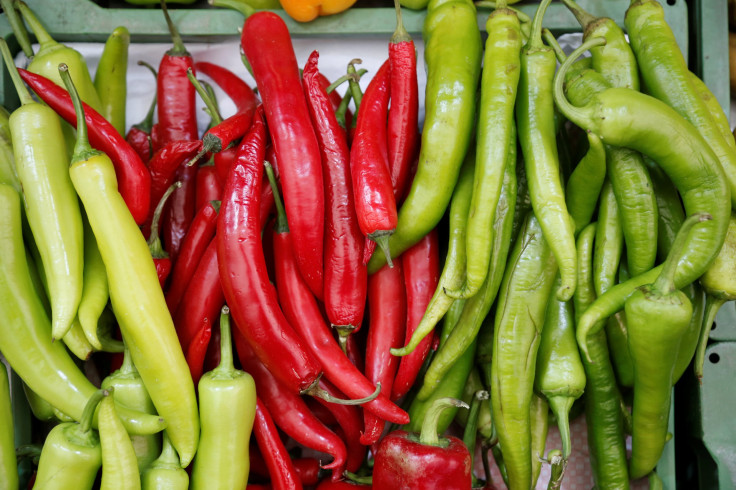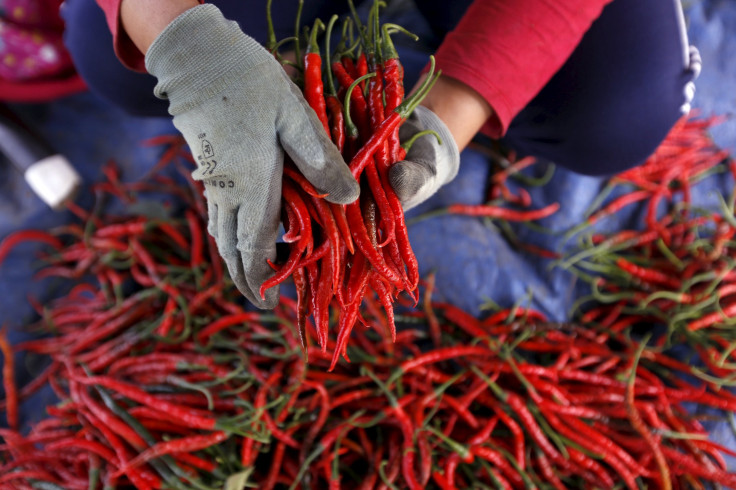Cure For Breast Cancer? Spicy Molecule Found In Chili Peppers And Curry Can Help, New Study Reveals

Spicy foods could be the ultimate kryptonite for certain types of cancer cells, a study published Tuesday in the journal Breast Cancer: Targets and Therapy found. Researchers found that capsaicin, the molecule that makes foods like chili peppers spicy, caused the cells of a particularly aggressive type of breast cancer to die off in large numbers.
A team at Ruhr-Universitat Bochum in Germany experimented on cultivated tumor cells of triple-negative breast cancer, a type of cancer for which the only available treatment is chemotherapy. Researchers found that specific receptors, called Transient Receptor Potential Channels (TRPV1), occurred often in the cells and were activated by capsaicin.
The capsaicin caused large numbers of the cells to die. The remaining cells were no longer able to move quickly and therefore divided more slowly, slowing the growth of the cancer significantly. The catch is that consuming the molecule through food isn’t enough, it must be incorporated into a medical treatment.
“If we could switch on the TRPV1 receptor with specific drugs, this might constitute a new treatment approach for this type of cancer,” one of the lead researchers in the study, Hanns Hatt, said in a press release.
Triple-negative breast cancer is a subtype of breast cancer that lacks three receptors found in other types of breast cancer. Successful treatments for breast cancer mostly target those three receptors, so their absence makes triple negative especially difficult to treat. About 10 to 20 percent of breast cancers are categorized as triple negative. It can be particularly aggressive and is more likely to recur in patients than other types of breast cancer, according to the Triple Negative Breast Cancer Foundation.

Capsaicin has been studied in the past for its medicinal properties. Research done at the Changua Christian Hospital in Taiwan in 2011 found that the molecule induced apoptosis, or self-destruction, in certain types of breast cancer cells. Capsaicin is also used in some topical medicines as a pain reliever.
© Copyright IBTimes 2024. All rights reserved.






















